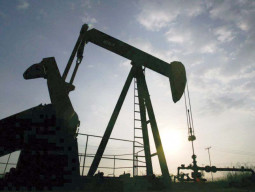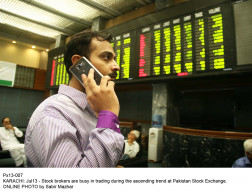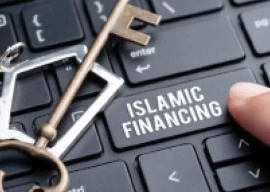
According to a research report compiled by Topline Securities, foreigners now hold 34% of the free-float, which is equal to 8% of the total market capitalisation. In contrast, the foreigners’ holding in April 2008 comprised 27% of free-float and 7% of total market capitalisation.
The latest high in portfolio investment comes on the heels of the secondary offering of United Bank (UBL) in June 2014 in which a major portion was bought by offshore investors, according to research analyst Vahaj Ahmed.
“Despite uncertainties on the political front due to Imran Khan’s long march on August 14 and relatively dull activity due to Ramazan in July, foreign investors continued to pour more funds in Pakistan’s stock market,” Ahmed said, adding that foreigners’ net buying in July was $68 million that increased the benchmark KSE-100 Index by 3%.
July was the fourth consecutive month of net foreign buying, he noted, while pointing out that the Pakistan market gains equal 21% in first seven months of 2014. “In dollar terms, Pakistan’s market has posted a gain of 27%, thanks to currency appreciation that put Pakistan in the top 10 best performing markets for a third consecutive year.”
The research note also referred to a recent study conducted by Topline Securities that estimated foreigners’ ownership in top 25 listed companies. “Our sample companies make 69% of Pakistan’s total market capitalisation… Our analysis suggests foreign investors -- sponsors plus portfolio investors -- hold 29% of top 25 listed companies in Pakistan.”
With 35% shareholding, the government remains the largest shareholder, he said. The third highest shareholding (23%) rests with local institutions while 13% is controlled by retail/high net worth investors.
Going forward, the government is expected to privatise state-owned enterprises (SOEs) as per its understanding with the International Monetary Fund (IMF).
With the government expected to sell its shares in oil and gas companies and banks in the next 12 months, Topline Securities foresees ‘healthy foreign participation’ in 2014. “Government offerings will increase market float and attract decent foreign activity. These offerings may affect share prices in the short run, as the government plans to raise billions of dollars to support its fiscal and external account. However, in the medium term, such offerings help in overall market development,” Ahmed said.
With the elevation of the UAE and Qatar to MSCI Emerging Markets (MSCI-EM), Pakistan’s weight in MSCI Frontier Markets (MSCI-FM) has increased to 6.1%. With frontier market funds increasing their investments in Pakistan, Topline Securities believes huge government offerings may result in Pakistan’s elevation into the MSCI-EM in 2015, he said.
Published in The Express Tribune, July 29th, 2014.
Like Business on Facebook, follow @TribuneBiz on Twitter to stay informed and join in the conversation.
COMMENTS (3)
Comments are moderated and generally will be posted if they are on-topic and not abusive.
For more information, please see our Comments FAQ



1731655243-0/BeFunky-collage-(61)1731655243-0-165x106.webp)













Hameed, Somehow we Pakistanis are too critical of our country. Even a good thing is bad in our eyes. . Spoke with a facebook Nepali friend who told me having no fan due to long electricity loadshedding. When enquired, he told me they don't normally have UPS/generators and loadshedding durations are upto 20 hours. . I was shocked to see that I have 50 Nepali facebook friends and none of them has ever shared a condemning video of their PM or ministers or have cried how they are suffering due to no electricity. Sometimes I think facebook should also be banned in Pakistan along with youtube. We don't deserve it as we don't know good use of it. All we can do is criticise, cry, complain and do nothing to change things for better.
@Hameed: Pakistan is not an isolated case. This trend is existing everywhere.
Money siphoned away from Pakistan being routed to the stock market under last govt's amnesty scheme. And poor Pakistanis are told that it is 'foreign investment'. What a joke!